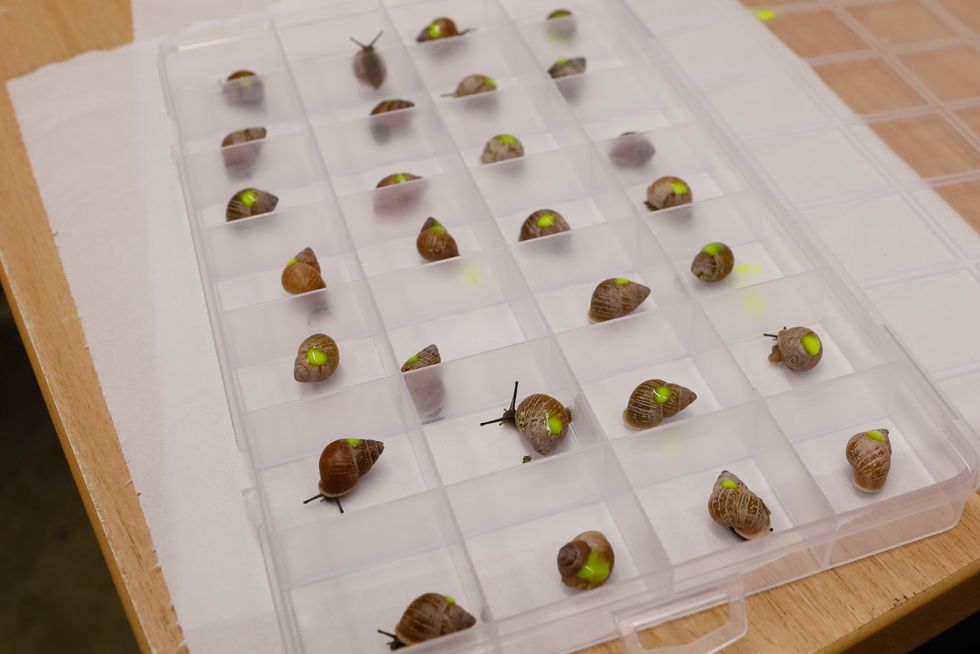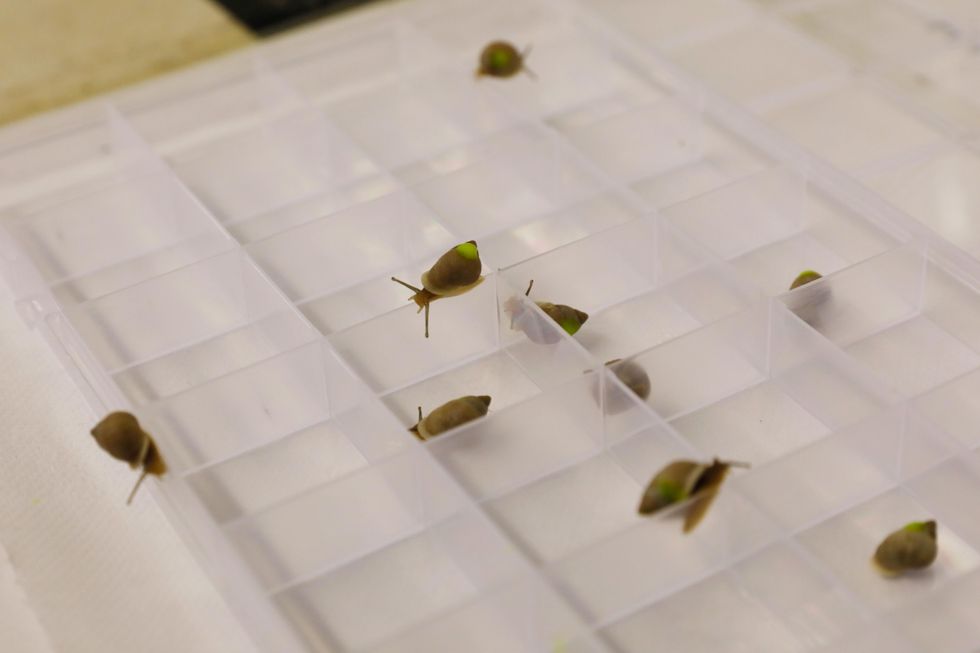Lucinda Cameron
Sep 10, 2024

The snails have been marked with UV reflective paint (RZSS/PA)
Thousands of extremely rare Partula snails bred at Edinburgh Zoo are to be released into the wild in French Polynesia to help restore the population there.
The Royal Zoological Society of Scotland (RZSS) has been part of a collaborative initiative helping to bring the species back from the brink since 1984.
Ahead of the 15,000km (9,320-mile) journey, the tiny nocturnal snails have been individually marked with a dot of yellow UV reflective paint by RZSS teams.
This means they will glow under UV torchlight and help conservationists monitor the populations at night, when the creatures are most active.

Jo Elliot, curator at RZSS, said: “It is extremely exciting to be able to send some of our Partula snails, which we have been breeding for years, to be reintroduced directly back into their native habitat.
“We are extremely proud to be part of this vital collaborative breeding project, which is giving this incredible species a significant boost.
“Our success within the Partula snail programme is owed to the teams who began the work here at Edinburgh Zoo many years ago and to those who now form the wider project partnership, working to ensure this initiative goes from strength to strength.
“This is a really wonderful conservation success story and further demonstrates the critical role zoos can play in species recovery.”
The snails left Edinburgh Zoo on Tuesday and will be flown to Tahiti.
It comes after snails bred at Edinburgh Zoo were released in French Polynesia last year as part of the project.
Partula snails were under imminent threat of extinction in the 1980s and early 1990s after the invasive predatory rosy wolf snail was introduced to rid the islands of a previously introduced non-native species, the African giant land snail.
Unfortunately, the predatory rosy wolf snail targeted the endemic Partula snails instead, meaning many were lost and the species was left close to extinction shortly after the arrival of the predators.
The last few surviving individuals of several Partula species were rescued in the early 1990s by RZSS and the Zoological Society of London (ZSL) in order to begin the international conservation breeding programme – a collaboration between 15 zoos which care for 15 species and sub-species.
Top 100
The Conversation (0)













